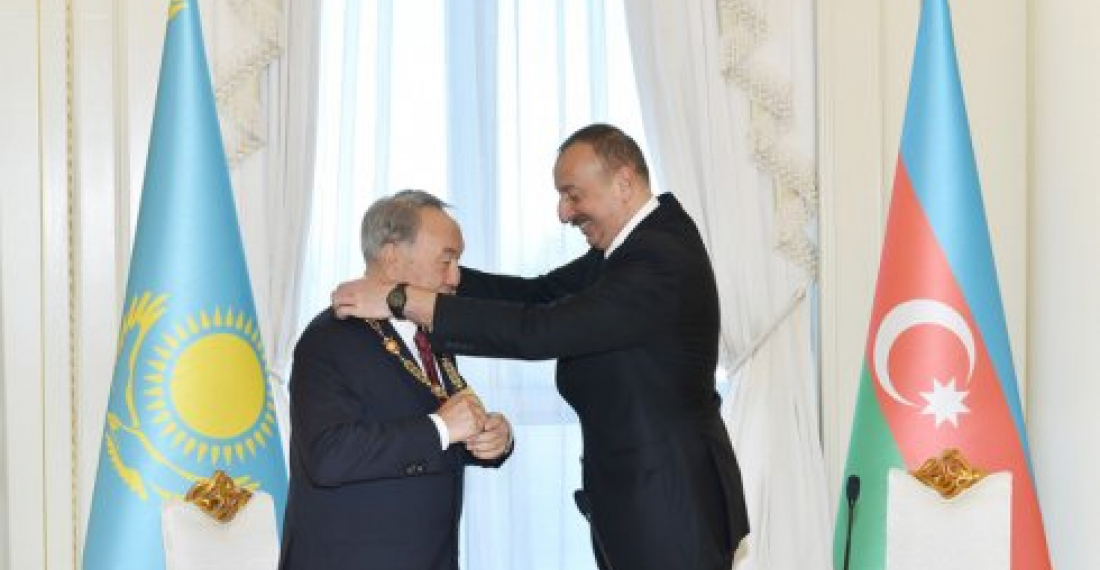Azerbaijan and Kazakhstan have agreed to boost ties between them and to increase trade to reach one billion dollars a year. This was stated during a short visit to Baku by the Kazakh President Nursultan Nazarbayev which ended on Monday (3 April). During the visit the two sides signed a number of agreements and issued a joint declaration of the two heads of state.
At the end of the visit President Ilham Aliev awarded Presdient Nazarbayev with the Heydar Aliev Order.
Speaking earlier at a press briefing the Kazakh President said that transport-logistics cooperation via the Caspian Sea was an important current issue.
"Kazakhstan built a 2,000km railroad from the Chinese border to the Caspian Sea and Western Europe-Western China highway. The projects turned out to be quite beneficial. Now we are discussing the possibility of delivering good from China to Europe through the Caucasus and the Caspian Sea" the newspaper Astana Times quoted the Kazakh leader as saying. Nazarbayev said that the two countries must work to increase their trade to US$ 1bln annually.
Speaking at the same press brieifing, Azerbaijani President Ilham Aliev thanked Kazakhstan for its principled position on the Karabakh issue, and said that this was reflected in the text of the joint declaration of the heads of States of the two countries issued after the visit.
source: commonspace.eu with agencies
photo: President Ilham Aliev presenting the Heidar Aliev Order to Kazakh President Nursultan Nazarbayev in Baku on 3 April 2017 (picture courtesy of the press service of the president of Azerbaijan)







